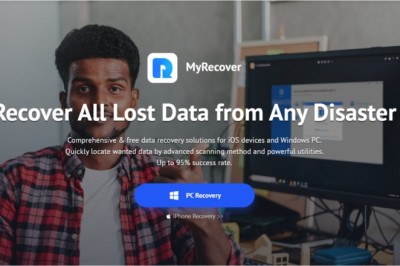views

The concepts and ideals that influence decision-making and actions in diverse domains, taking into account the possible impact on individuals, communities, and society as a whole, are referred to as ethical considerations. When dealing with sensitive or ethically difficult problems, these factors are especially relevant.
Ethical considerations in each given scenario entail weighing the possible rewards, risks, and repercussions of a certain course of action. They give a framework for judging what is morally correct or wrong, what is just or unjust, what is fair or unfair, and what is respectful or disrespectful. Ethical issues can emerge in a variety of settings, including medical, research, business, technology, law, politics, and everyday encounters.
The following are some common ethical standards that frequently govern decision-making:
- Individuals' freedom to make educated judgements about their own life, including their preferences, beliefs, and personal autonomy, is recognised and respected.
- Beneficence is defined as acting in ways that enhance the well-being and best interests of others, with the goal of maximising good outcomes and minimising damage.
- Nonmaleficence is defined as the avoidance of behaviours that cause harm or have negative repercussions, with the goal of preventing or mitigating harm to individuals or society.
- Justice is ensuring justice and equity in the distribution of rewards and obligations, as well as treating all people fairly and without prejudice.
- Respecting the right to privacy and preserving sensitive information while keeping secrecy where appropriate.
- Communicating truthfully, openly, and transparently in order to establish trust and accountability.
- Maintaining moral and ethical ideals, exhibiting consistency between words and deeds, and behaving in good faith are all examples of integrity.
Many fields have formed ethical norms, rules of behaviour, and oversight organisations to successfully handle ethical concerns. These offer a framework for experts and practitioners to handle difficult ethical issues and ensure that decisions and actions are in accordance with established ethical norms.
Ethical issues can occasionally clash, necessitating careful study and balance of opposing ideals. When various values or interests collide, ethical quandaries can occur, and finding a solution that preserves the highest ethical standards can be difficult.
With its immense prospects for creativity and decision-making, data science has revolutionised the way we use and analyse information. The ethical issues raised by data science practises must be addressed in addition to these achievements. Data science ethics must take a variety of factors into account, such as privacy, justice, openness, responsibility, and societal effect. We shall explore these ethical issues in more detail in this essay and underline how important they are to securing humanity's digital future.
A data science course provides valuable knowledge and skills in analyzing and interpreting data to gain insights and make informed decisions. However, it is essential for such courses to emphasize the ethical considerations in data science, including privacy protection, data bias mitigation, and responsible data usage, to ensure that data-driven solutions are developed and implemented with integrity and fairness.
Consent with Informed Consent and Privacy
In data science, informed consent and privacy are critical ethical issues. Before collecting and using personal data, data scientists must get explicit agreement from individuals. This entails giving concise and intelligible information on the goal of data gathering, how it will be used, and any potential hazards.
Individuals should have the ability to govern their data and withdraw consent at any moment. Respecting privacy rights is critical, and data scientists should put in place strong security measures to prevent unauthorised access or breaches of personal information.
Fairness and bias
Bias in data science can prolong socioeconomic inequities and lead to unfair discrimination. Data scientists must be cognizant of potential biases in data sources, data gathering methods, and algorithms. Care must be made to guarantee that data-driven choices and outcomes are fair and unbiased.
Regularly auditing algorithms and examining their influence on various demographic groups can aid in the identification and correction of biases. Diverse and inclusive teams can help reduce prejudice by providing different viewpoints and questioning preconceptions.
Data Integrity and Security
Data security and integrity are critical ethical considerations. Data breaches may have serious implications, including identity theft, financial loss, and reputational harm. To protect data throughout its lifespan, data scientists must incorporate strong security measures.
Encryption mechanisms, safe storage, access controls, and frequent vulnerability assessments are all part of this. Data scientists demonstrate their dedication to safeguarding persons and organisations from possible damage by prioritising data security.
Accountability and transparency
In data science, transparency and accountability are critical ethical concepts. Transparency should be sought by data scientists by explicitly describing their techniques, data sources, and data preparation procedures. Sharing discoveries, code, and algorithms openly encourages scientific repeatability and allows for independent evaluation.
Accountability entails accepting responsibility for data-driven judgements. Individuals and organisations should be held accountable for the outcomes of their data-driven actions to ensure ethical and responsible behaviour.
Social Responsibility and Impact
Data science has the potential to have a big influence on society. Data scientists that are ethical should address the larger societal ramifications of their job. This includes weighing the risks and advantages, as well as the impact on individuals and communities.
Collaboration with domain experts and stakeholders is required for responsible data science to guarantee that the outputs correspond with society values and contribute positively to human well-being. Ethical frameworks and standards, such as those addressing AI ethics and human rights, can help navigate the societal implications of data science.
Conclusion
Finally, in the realm of data science, ethical issues are critical. As data grows more valuable and prevalent, it is critical to prioritise the ethical components of data science in order to safeguard privacy, remove prejudice, and guarantee responsible data usage.
By incorporating ethical considerations into data science courses, we can provide future professionals with the knowledge and skills needed to navigate the field's ethical challenges, promoting the development and implementation of data-driven solutions that are both effective and ethically sound.
Also, learning about data science and taking Data science training is significant because it provides learners with the knowledge and skills required to extract meaningful insights from massive volumes of data, allowing evidence-based decision-making, innovation, and problem-solving across several disciplines.
Related: Data Science Course


























Comments
0 comment